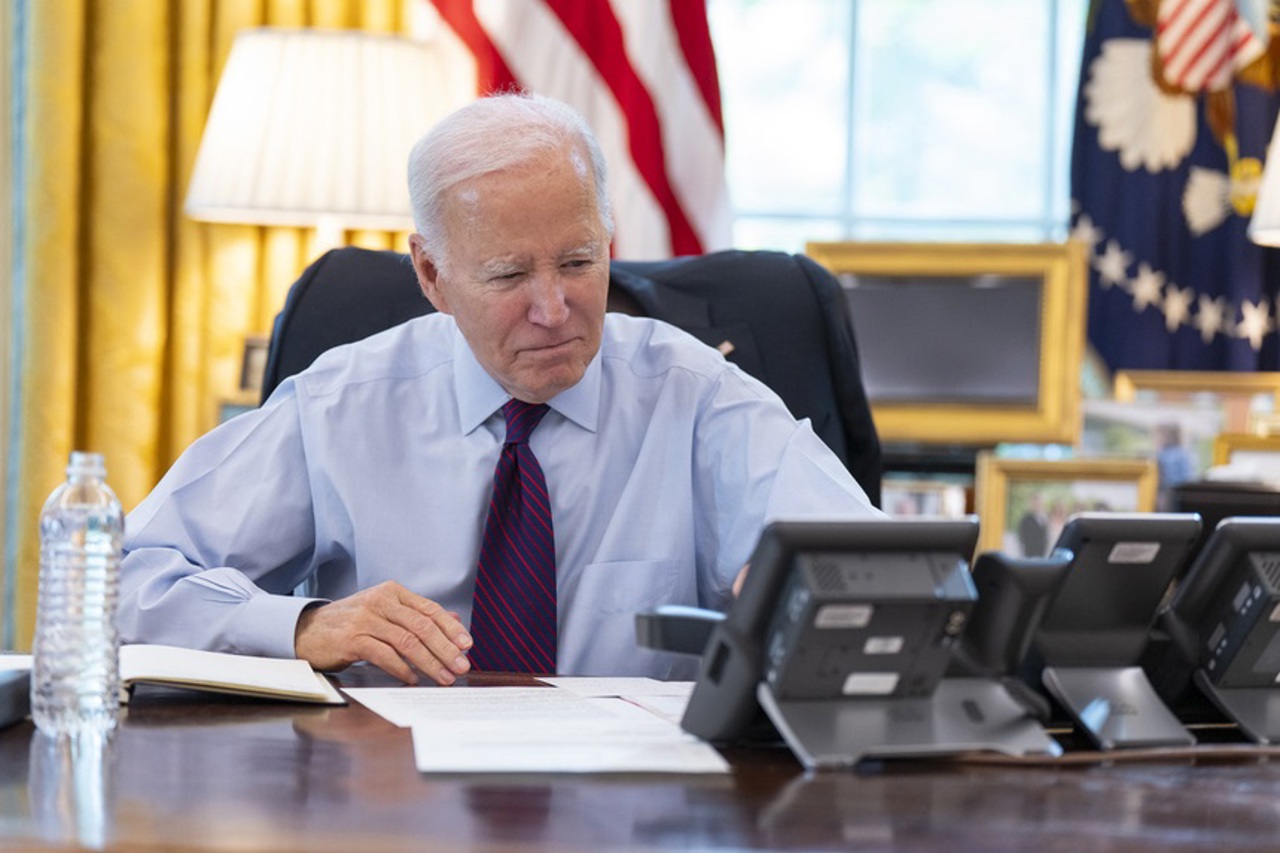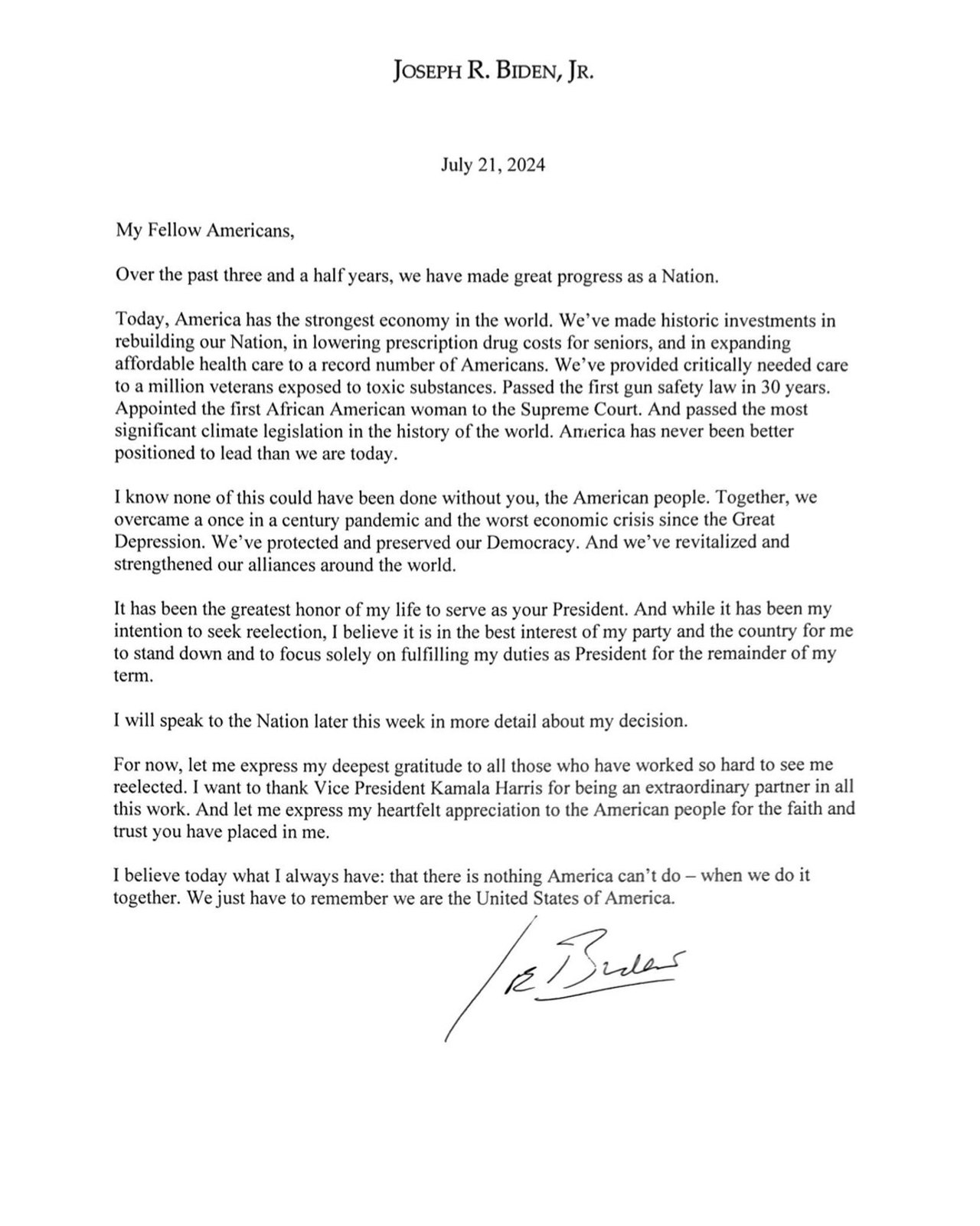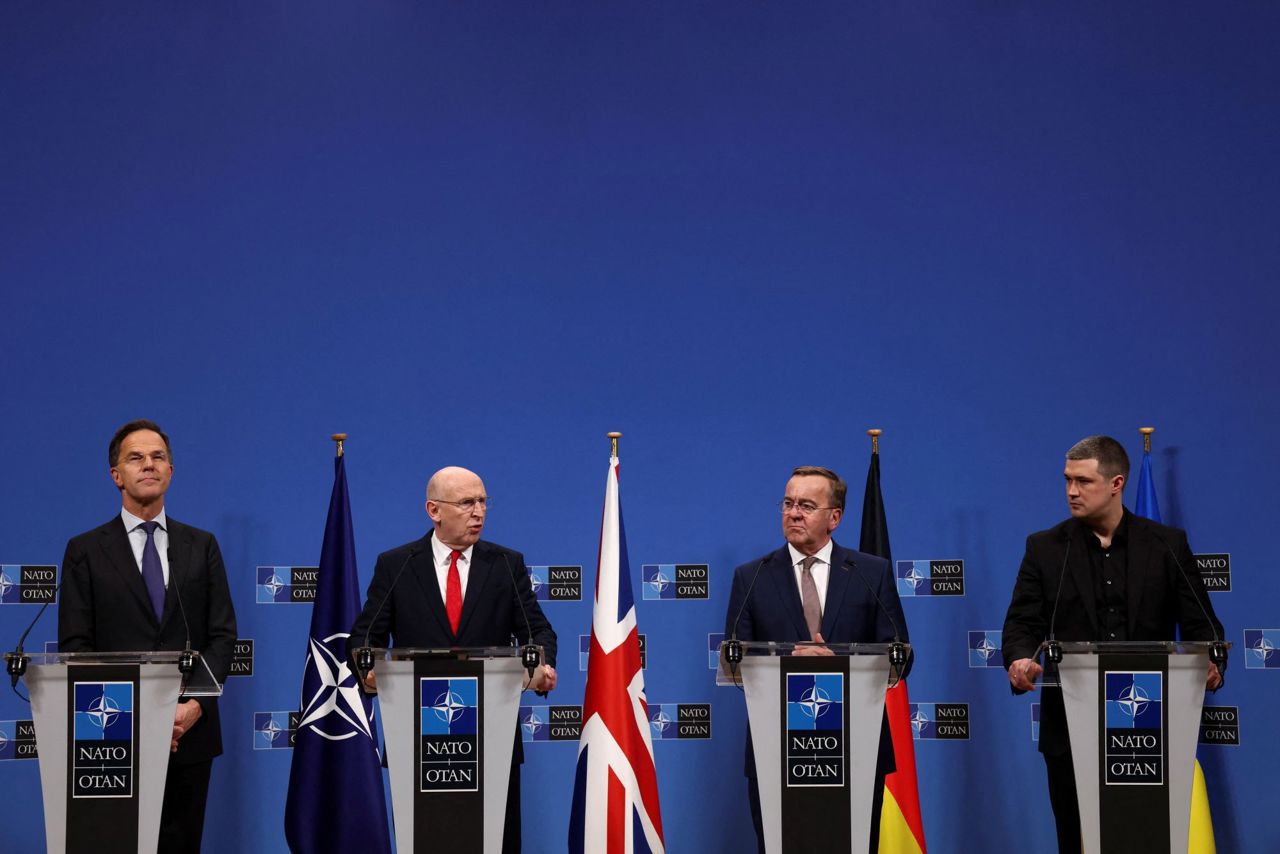Biden Withdraws from Re-election Amidst Mental Capacity Concerns
President Joe Biden has announced his decision not to seek re-election in the upcoming presidential race. In a statement posted on his official account on X, Biden indicated that he will provide a detailed explanation to the nation later this week, as reported by CNN.

“It has been the greatest honour of my life to serve as your President,” Biden stated. “Although I had intended to seek re-election, I believe it is in the best interest of my party and the country for me to withdraw and focus exclusively on fulfilling my duties for the remainder of my term.”
My fellow Democrats, I have decided not to accept the nomination and to focus all my energies on my duties as President for the remainder of my term. My very first decision as the party nominee in 2020 was to pick Kamala Harris as my Vice President. And it’s been the best… pic.twitter.com/x8DnvuImJV
— Joe Biden (@JoeBiden) July 21, 2024
Biden’s withdrawal concludes weeks of concern regarding the 81-year-old president’s energy and mental capacities, as well as scepticism about his ability to run an effective campaign against former President Donald Trump and govern the country for an additional four years. His decision is also likely to prompt questions about his capacity to fulfil presidential duties until the end of his term.
This marks the first time in decades that an American president has withdrawn from the race for re-election, echoing President Lyndon Johnson’s decision not to seek a second full term in 1968. Biden’s decision comes several months later in the campaign compared to Johnson’s announcement. This development is the latest in a series of surprising events in an extremely tense political campaign, which has also included an assassination attempt on Trump.
Despite the assassination attempt and its tumultuous effects on the race, Biden’s diminishing support among congressional Democrats persisted. The growing concern was that a defeat in November would adversely affect local-level contests. By the time Biden exited the race, numerous legislators had called for him to step down.
Major donors shared this sentiment. Actor George Clooney, a longtime supporter of Biden, wrote in an op-ed published on July 10 in the New York Times that Democrats “will not win in November with this president” and urged the party to select a new nominee.
Initially, Biden was resolute about staying in the race. However, as defections from his support base continued and leading Democrats in Congress engaged in difficult discussions with the president about his chances against Trump and the negative impact on local Democrats in competitive races, Biden became increasingly receptive to the idea of withdrawing.
In an interview with George Stephanopoulos of ABC on July 5, Biden dismissed questions about his political future, stating that only “the Almighty” could persuade him to withdraw. A few days later, Stephanopoulos candidly mentioned to a passerby that he did not believe Biden could serve another four years.
Biden later informed reporters at a NATO press conference that he would withdraw if polls indicated he could not win. About a week later, he stated he would reassess his position if any “medical condition” arose and doctors indicated it could be problematic. The following day, the White House announced that Biden had contracted Covid-19.
The assassination attempt on Trump on July 13 temporarily interrupted the calls from congressional Democrats for Biden’s withdrawal and diverted national attention from his faltering presidential campaign. However, the respite was short-lived. On July 17, Rep. Adam Schiff became the first Democrat in the House of Representatives to call for Biden’s withdrawal post-assassination attempt, with others following in the subsequent days.
Biden’s evolving stance on his future as the party’s nominee was closely tied to efforts by his key allies to convince him of the narrow path to victory. Former Speaker Nancy Pelosi informed Biden a few weeks after the debate that polls indicated he could not win.
Translation by Iurie Tataru







